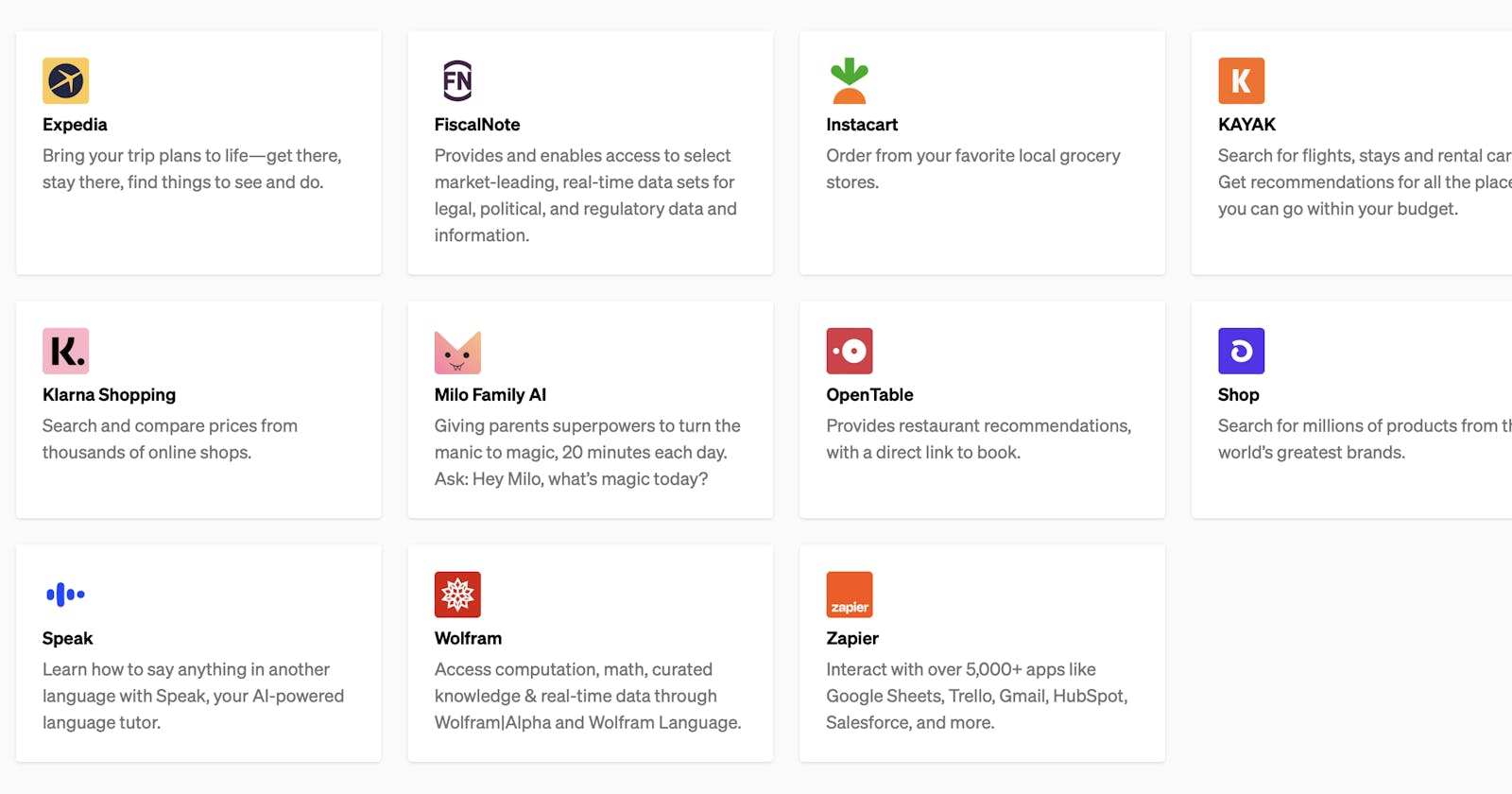It will change the future of humanity. Here's how they work and why this is so important:
- By introducing plugins for ChatGPT, the language model's capabilities are enhanced, enabling it to:
• Access up-to-date information
• Run computations
• Use third-party services This will unlock use cases that shape the future of human-AI interaction.
- Here's an example of weekend meal planning, along with collaborations with major companies:
• Restaurant recommendation for Saturday (OpenTable)
• Recipe for Sunday (ChatGPT)
• Calculate calories (WolframAlpha)
• Order the ingredients (Instacart)
- OpenAI's ChatGPT browser plugin is now capable of accessing information beyond its training data from the internet.
• Uses the Bing API to search
• Synthesises information across multiple sources
• References sources with click-throughs to verify claims
- A plugin for interpreting code written in Python has been developed experimentally, enabling ChatGPT to utilize Python within a secure environment.
• Solves mathematical problems
• Data analysis and visualisation
• File format conversion I feel this will make coding more accessible to everyone.
- Open-source retrieval plugin for personal and organisational data:
• Access relevant document snippets
• Integrate various vector databases
• Synchronise information sources This one's great—it allows users to seamlessly interact with their data while maintaining privacy.
Here's an overview of the potential first and second-order effects of ChatGPT plugins on individuals, businesses, and the economy that I wanted to bring to your attention:
Impact on SEO and content quality Content saturation: The proliferation of AI-generated content using ChatGPT plugins may result in a crowded market, making it more challenging for businesses to distinguish themselves in search results. As a result, there may be a need to modify SEO strategies.
Quality vs. quantity: With the increasing prevalence of AI-generated content, search engines such as Google may need to modify their algorithms to effectively distinguish between authentic, high-quality content and AI-generated content that exploits SEO tactics.
Competition: Smaller businesses may face difficulties in competing with larger organizations that have access to more resources and advanced AI tools. e.g., Instacart + plugin vs a new grocery delivery service.
Ethical and privacy concerns Reinforcement of biases: The amplification of pre-existing biases in data sources or user inputs through plugins may lead to the creation of harmful stereotypes and reinforce biased decision-making, which is something we need to prevent.
Privacy concerns: The use of plugins that access personal or organizational data may result in inadvertent data leaks or privacy violations, eroding trust and potentially compromising sensitive company information.
Economic implications and job displacement Job displacement: The expanded capabilities of ChatGPT plugins will result in the automation of tasks and workflows that were previously performed by humans, leading to job losses and economic disruptions across various industries.
Monopolisation of AI services: Uneven allocation of ChatGPT plugins and their associated benefits has the potential to worsen current economic inequalities, creating an unfair advantage for well-resourced organizations while disadvantaging smaller businesses and underprivileged individuals.
Economic inequality: The unequal distribution of ChatGPT plugins and their associated benefits may exacerbate existing economic disparities. This could result in well-resourced organizations gaining an unfair advantage over smaller businesses or underprivileged individuals.
While I recognize the significant value creation and efficiency improvements that plugins can bring, I believe it is important to consider factors such as access and governance. This will ensure that these systems are not only available for use by everyone, but also that everyone has an equal opportunity to benefit from them.
